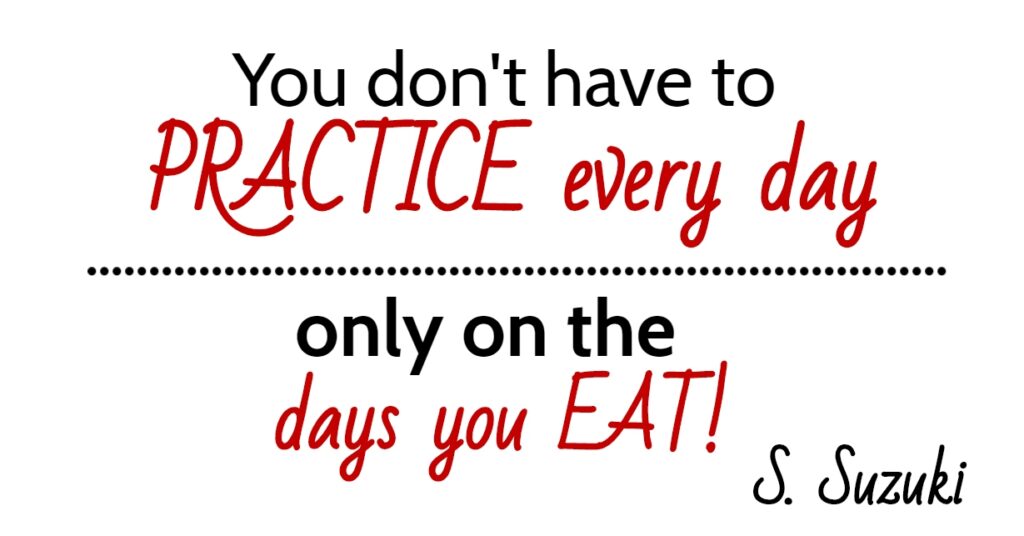
What a great quote from Dr. Suzuki!
You’ve probably heard your teacher say something like this in the past. They’re simply trying to encourage their students to treat practice more like eating, rather than schoolwork. Right?
The truth is, how you view practice, impacts how you play and perform. The performance is the outcome that everyone wants, but the practice is the fuel for that engine. If there isn’t much fuel, you can only travel so far. If there isn’t enough practice – the same is true. Your ability to play an instrument is directly related to how you practice.
Why Should You Practice With Your Children Every Day?
Routine is best for children.
It is more difficult to miss a day and then get “back into the routine” rather than make it a part of the days’ activities every day. You’ve probably seen what happens when you all get to bed late one night. The next day is often a harder day to rally the troops. Just like regular sleep, regular practice builds a positive rhythm into the life of your child. Just like a regular eating pattern (and healthy food) stimulates the right kind of metabolism – regular practice (done right) stimulates personal growth.
Children build confidence when they are successful.
There is no magic to it. In order to excel at learning a musical instrument, it requires consistent, daily practice. Even small successes, like holding the bow correctly, or hitting the note just right, can be an opportunity to celebrate and spotlight a success. These small successes build up and encourage confidence for the long-term.
Practice every day is good training for other aspects of life.
For example, being committed to something from a young age will help to promote commitment throughout life to other responsibilities that life will bring. There is significant research that connects playing an instrument and the discipline that goes into doing so, with other aspects of life. Practice benefits :
- Memory skills
- Perseverance
- Coordination
- Math Skills
- Reading and Comprehension Skills
- A Sense of Personal Responsibility
- Positive Self-Expression
- Social Skills
So how do you get your child to practice EVERY day?
Remember – you are the adult. Our children first learn by example. Getting your child to practice every day will be a habit that you – first – need to get into. Here’s a great NPR spot that can give you some inspiration on how to motivate and encourage practice rather than turning it into a chore.
Considering lessons for your child? We’d love to give you a tour of our school and get you more information.

